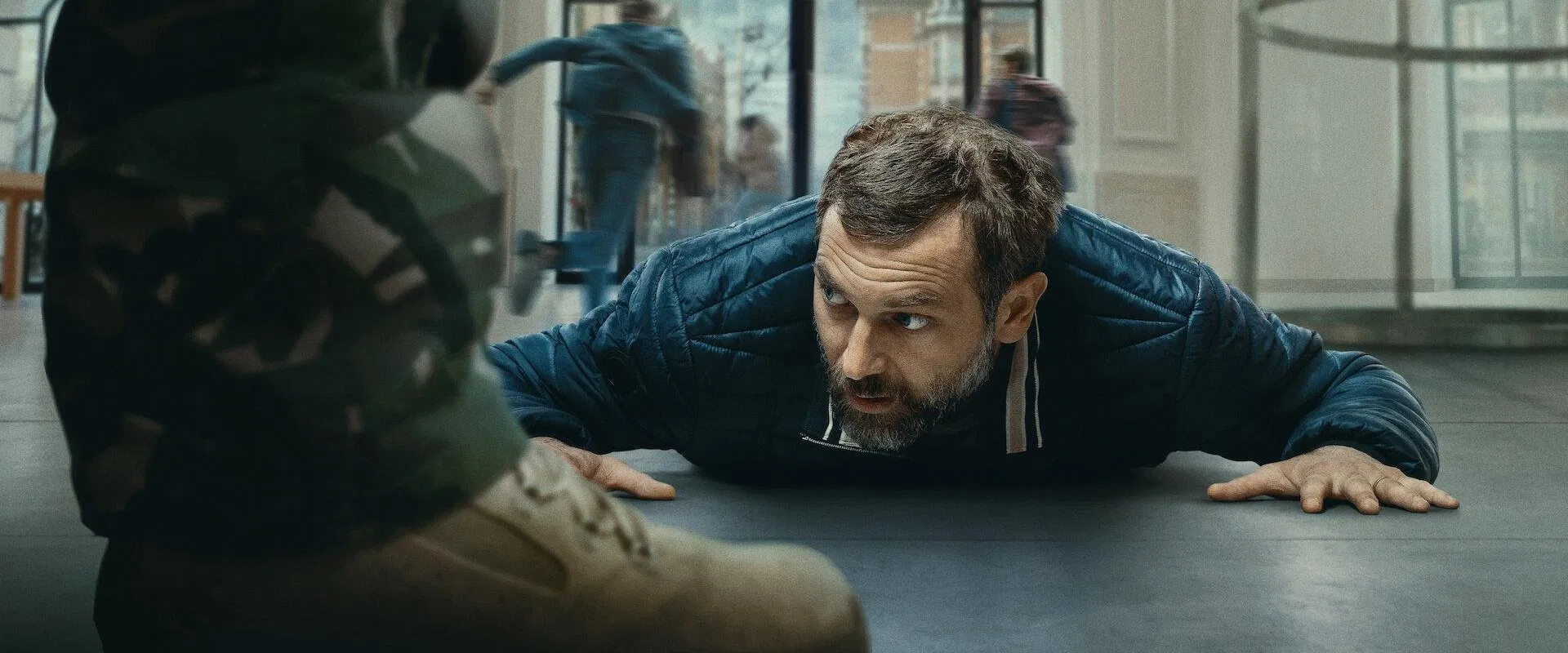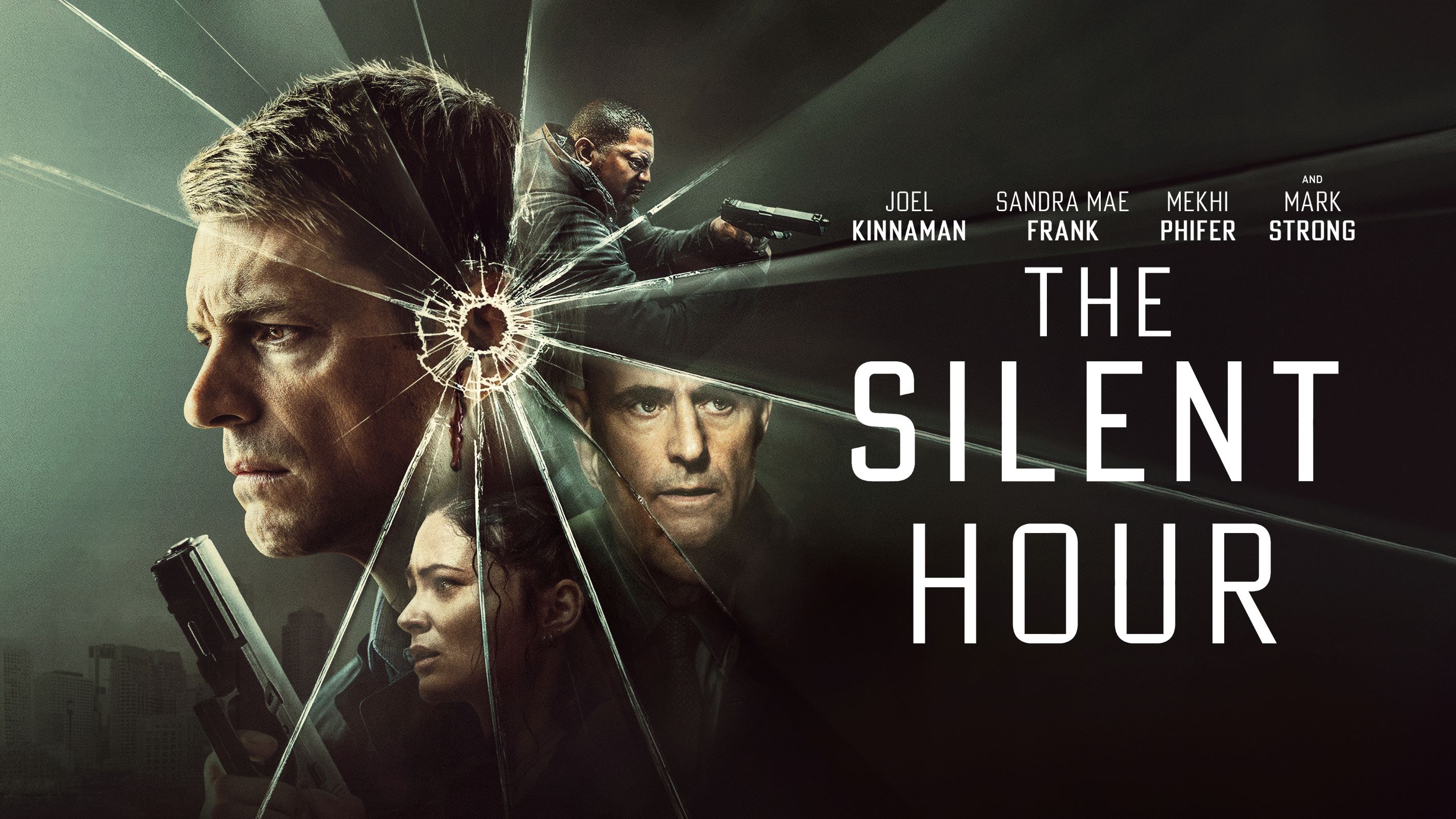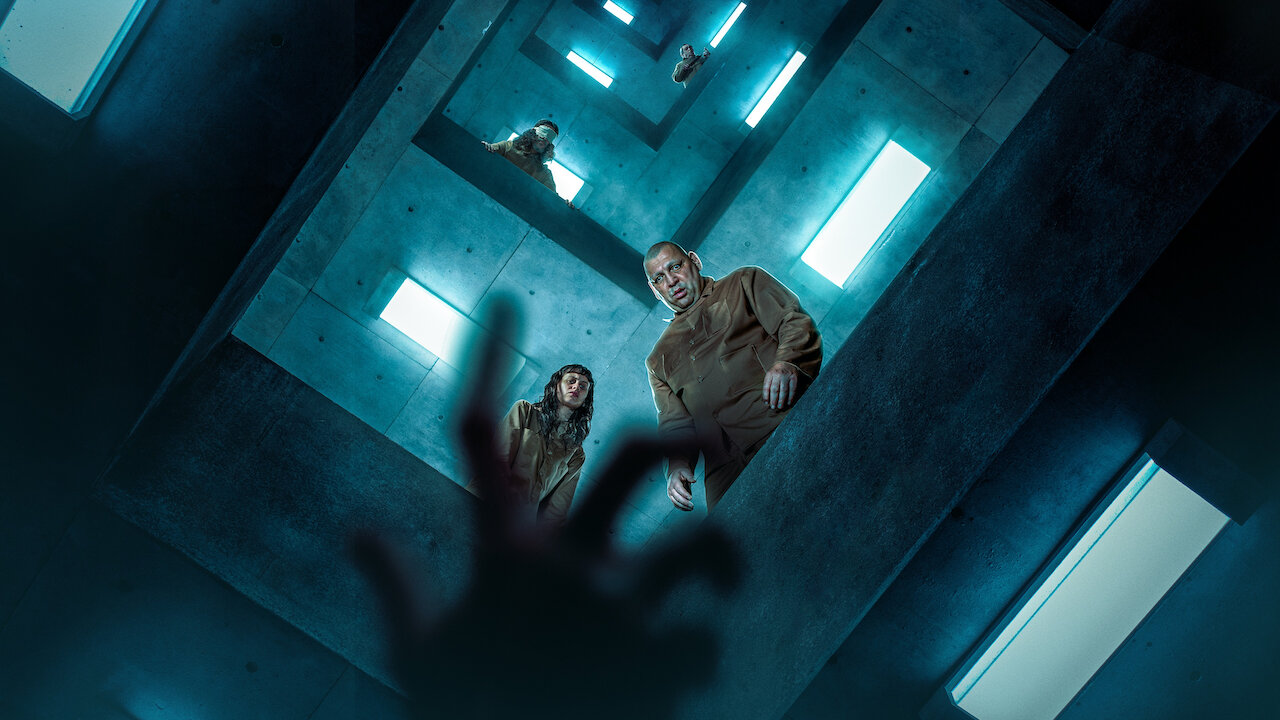There’s nothing quite as dispiriting in cinema as a film that mistakes product placement for dramatic architecture, and with iHostage, director Bobby Boermans seems to treat the glass walls and minimalist spaces of Amsterdam’s Apple Store as if they lend themselves to the gravitas of Sidney Lumet’s Dog Day Afternoon. But iHostage only proves that you can’t transcend your ingredients by virtue of logos and lighting alone. This movie—as colorless as the inside of an after-hours Apple showroom—manages to turn a genre built on suspense into an extended exercise in waiting for the Genius Bar to call your name.
For a film whose heartbeat is supposed to echo the rapid thrum of a city gripped by terror, it barely musters the pulse of the spinning wheel on a frozen MacBook. The basic premise, complete with a bomb-vested desperado and faceless hostages, is as off-the-assembly-line as their interchangeable backstories. The script, rather than searching for complexity or even curiosity, parks itself on exposition and stays there. The cops, too, seem to have wandered in from a procedural drama’s casting call—so indistinct that you half expect their credits to read “Chess-Playing Commander” and “Hostage No. 3.”
Never one to shy from pillaging her predecessors, iHostage recycles greater films’ gambits but forgets to smuggle in the urgency. Where Inside Man had tension lurking in every corner and Captain Phillips found the skin-crawling desperation in stares across an ocean of steel and sweat, this Dutch detour simply plods through its runtime like a firmware update with no discernible user benefit. The director, apparently having mistaken beige art direction for sterile gravitas, delivers visuals so passionless you imagine the production designer’s only note was “Imagine if IKEA sponsored a hostage crisis.”
What passes for “character development” here consists of acting so wooden it risks termite infestation. The actors, asleep on their feet, seem less like victims of circumstance and more like the galley staff trapped overnight at the Genius Bar—agonizing over whether the laser printer will ever be fixed. A chess motif is hamfisted into the proceedings—our lead cop introduced in a park, knocking out moves so telegraphed you suspect he read the script twice.
Sound design? If a tree falls in the Apple Store and no one raises their voice, does the Dolby mix notice? The murmurs and so-called tension are so antiseptic, the experience might be recommended as a cure for insomnia. The dreary palette—muted grays and retail whites—suggests the aesthetic sensibility of a Dutch post office at tax time.
Worst of all, there’s hardly a flicker of emotional or thematic interest beneath the bland surface. The film gestures, almost absent-mindedly, at the moral stakes of life under threat, but any attempt to probe into the nature of desperation or the fragility of modern existence is left unexplored, like abandoned shopping carts in a digital queue. Instead, the script waddles from cliché to cliché, never risking a single genuine connection, or even a moment of credible anxiety.
IHostage isn’t even offensive in its mediocrity; it’s simply stultifying. You find yourself wondering not whether the hostages will survive, but whether you will—through an hour and a half of dialogue that lands with all the force of a support chat bot closing your ticket. The only tension comes from the creeping dread that this, too, is becoming a franchise: the cinematic equivalent of a stalled software rollout.
If there’s anything admirable here, it’s the film’s commitment to banality. Some thrillers snap their audience to attention; iHostage gently ushers you to the exits, as if apologizing for having you around at all. There are films that capture American (or, here, European) anxieties, and there are films that simply capture the anxiety of wasted time—iHostage excels at the latter. Better to stand in line for the next iPhone: at least there, the waiting means you might end the day holding something of value. Here, the only thing you leave with is the wish that more filmmakers would remember what a corner is—let alone how to paint themselves out of one.


